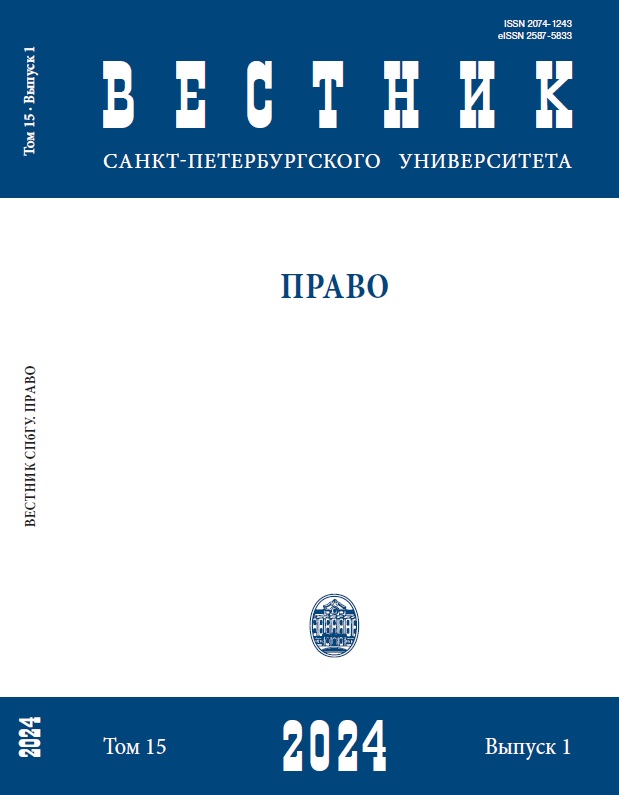Perjury: problems of criminal law regulation of subjective signs, complicity and punishment established for a crime
DOI:
https://doi.org/10.21638/spbu14.2024.105Abstract
The article is devoted to the study of directions for improving the norm governing criminal liability for perjury. The relevance of the research topic is due to the stability of the indicators of these acts, as well as the importance and diversity of social relations that suffer from their commission. The authors analyzed 230 court verdicts issued in connection with the commission of an act under Art. 307 of the Criminal Code of the Russian Federation. The results of the analysis were compared with the opinions of scientists and foreign experience of legal counteraction to perjury. The study of sentences made it possible to identify the most common motives for the crime, including selfish motives. The article substantiates the expediency of including this feature in Part 2 of Art. 307 of the Criminal Code of the Russian Federation, since it increases the social danger of a crime. In addition, the analysis of sentences made it possible to identify 42 episodes (18.2%) in which false testimony or conclusions of participants in the process indirectly testified to the presence of collusion. Since many facts of perjury that reinforce each other reduce the likelihood of their detection and increase the likelihood of making an erroneous decision, it is proposed to consolidate the forms of complicity in Part 2 of Art. 307 of the Criminal Code of the Russian Federation as qualifying signs. The authors also provide a justification for the fact that the sanctions established for giving false testimony do not contribute to the effective protection of protected relations. The main drawback is the lack of consistency with other norms. The article proposes to arrange among themselves the sanctions provided for the commission of related crimes. The wording of the relevant article has been formulated, which can be used as a recommendation for improving legislation.
Keywords:
perjury, justice, selfish motive, sanction, complicity, witness
Downloads
References
Downloads
Published
How to Cite
Issue
Section
License
Articles of "Vestnik of Saint Petersburg University. Law" are open access distributed under the terms of the License Agreement with Saint Petersburg State University, which permits to the authors unrestricted distribution and self-archiving free of charge.






